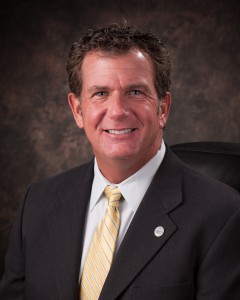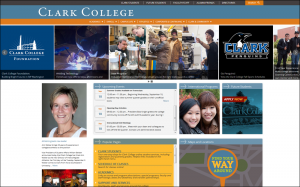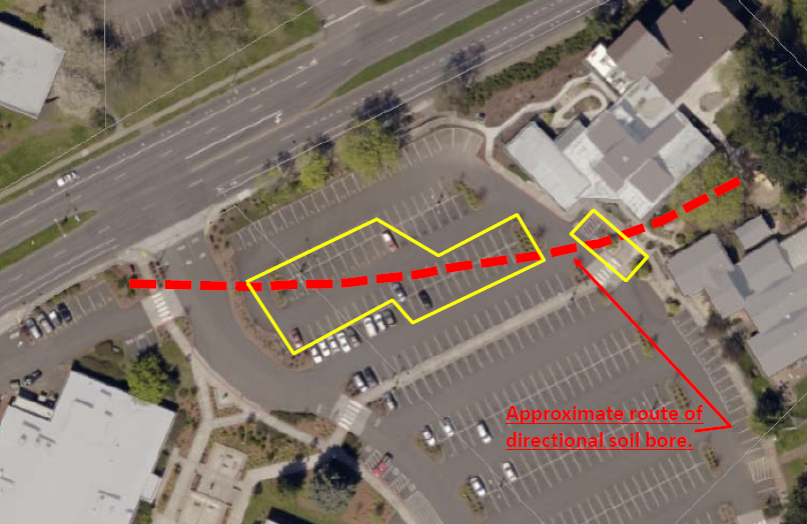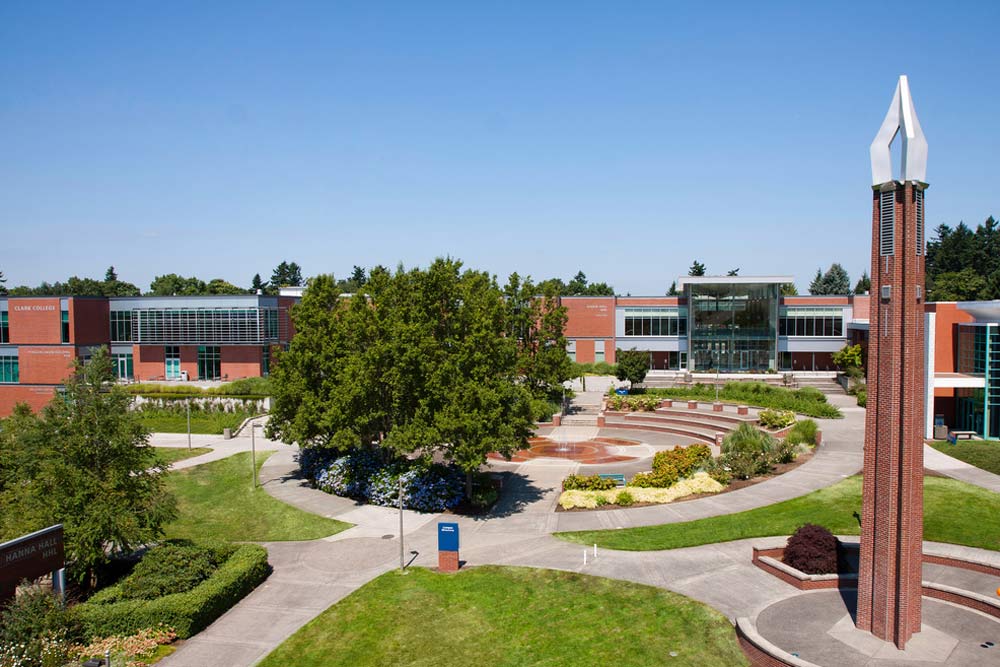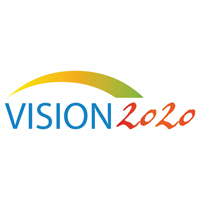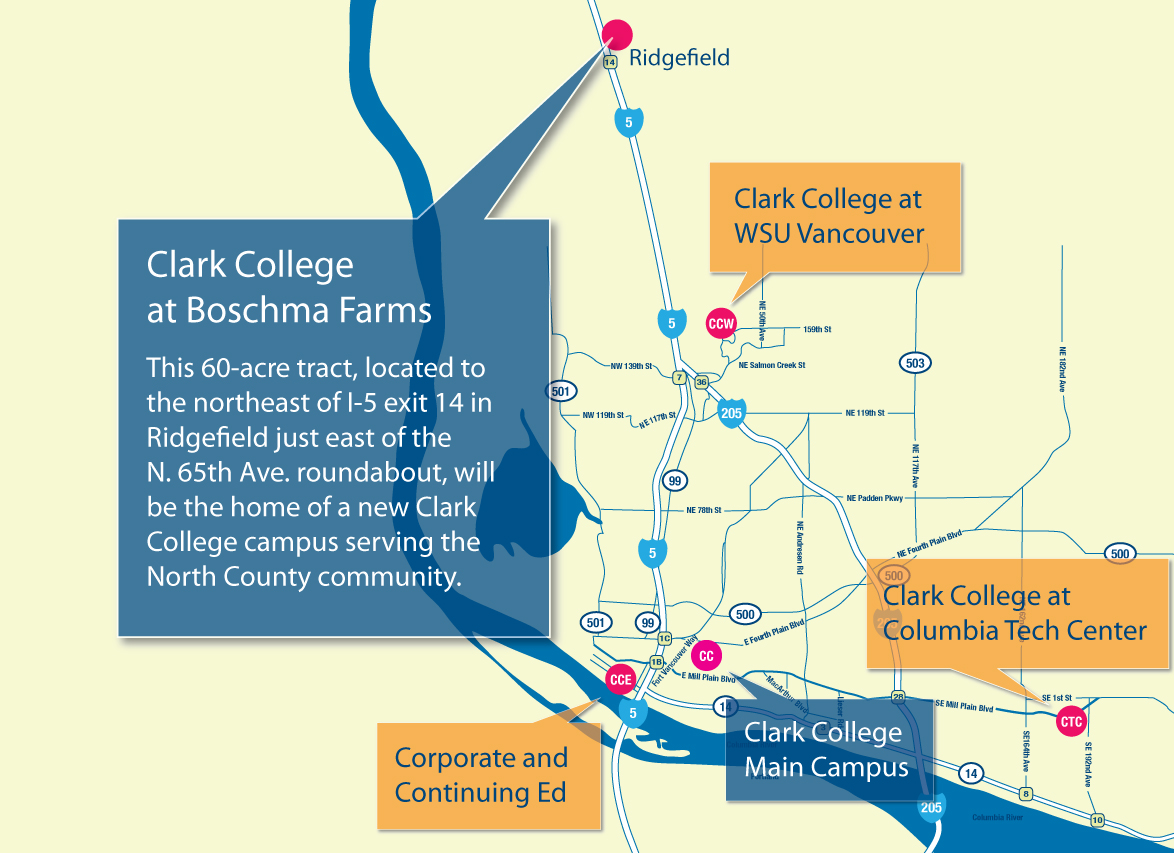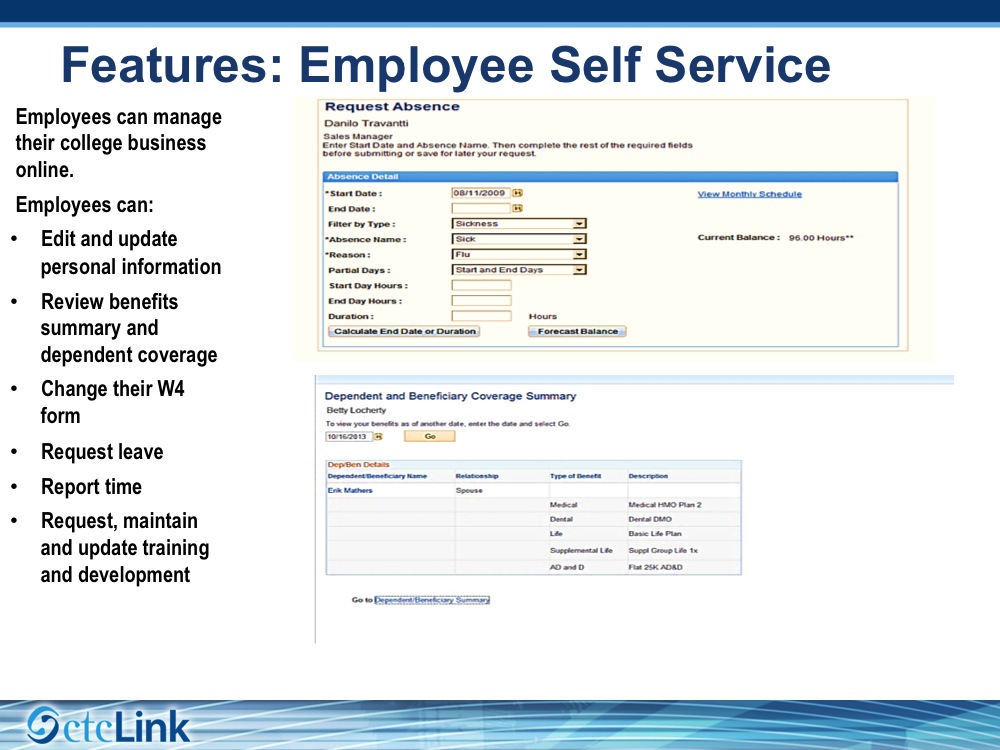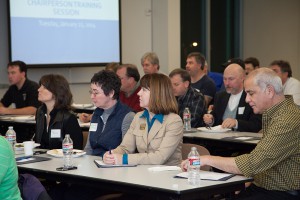A Decade of Service
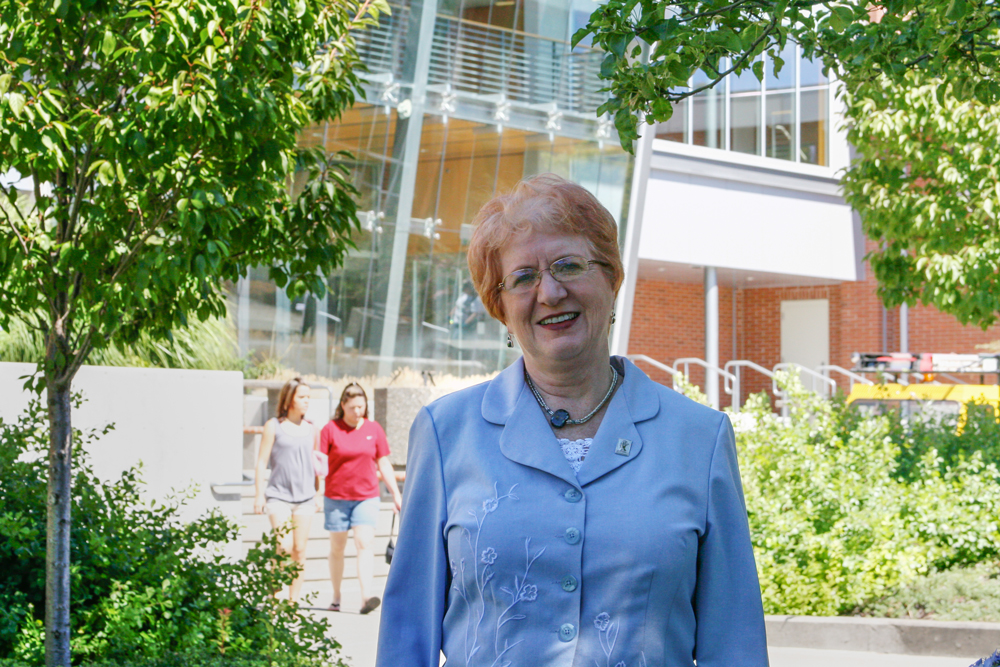
During her decade as a Clark College trustee, Sherry Parker has been a frequent presence at the college.
Ever since she first became a member of the Clark College Board of Trustees in 2003, Sherry Parker has been vital presence at the college, where she has faithfully attended not just board meetings but also Opening Days, State of the College addresses, cultural events, Commencement ceremonies—even when inmates were celebrating earning their GEDs through Clark at Larch Correctional Facility, Sherry Parker was there.
Last Thursday, however, Parker attended her last board meeting, as her tenure has officially expired. There was little fanfare at the event; Clark College President Bob Knight had hosted a private celebration at his home that Monday to thank Parker for her decade-long service to the college. Even so, as each trustee rose in turn to speak, it became clear how valuable Parker has been to the board.
“Sherry Parker was Clark College at the state level,” said Trustee Jada Rupley, referring to Parker’s role as a tireless committee member of the statewide Trustees Association of Community and Technical Colleges.
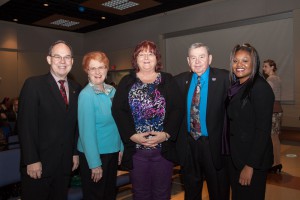
Clark College Trustee Jack Burkman, Trustee Emeritus Sherry Parker, alumna Dena Brill, Trustee Royce Pollard and Trustee Rekah Strong at the 2014 State of the College address.
That work earned her a TACTC Trustee Leadership Award earlier this year. Her nomination for the award cited her work in helping the college complete several key initiatives including the construction and opening of Clark College at Columbia Tech Center and the opening of the Oliva Family Early Learning Center, adding that she “has been a central figure in keeping the college focused on the student experience and student success. She is truly an advocate for students.”
Parker’s focus on students was due in part to her own experiences as a Clark student. She enrolled in the college in 1981, soon after she moved to Vancouver due to her husband’s job. Parker, who already had a bachelor’s degree in education from the University of South Florida, realized she would need to improve her computer skills to compete in the modern job market. She earned her Associate of Applied Science degree in 1983 and wound up working for the college as well, working part-time as a department secretary and teaching computer skills to mature learners through Clark’s Corporate and Continuing Education.
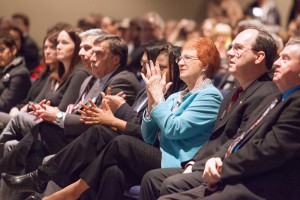
Sherry Parker, blue jacket, could always be counted on to attend events during her decade-long tenure as a Clark College trustee.
Eventually, Parker moved on to other job opportunities, working as a substitute teacher, in advertising, as a legal secretary in the juvenile court system, and in the Clark County Clerk’s office as Deputy Clerk. She was elected County Clerk in 2006 and served in that position until 2011.
In an email after the board meeting, Parker called the end of her tenure on the Board of Trustees “bittersweet.”
“I would be happy to continue my service, but after almost 11 years, it is time for a new perspective on the board,” she wrote. “I know [Michael] Ciraulo will do a great job as a trustee.”
Ciraulo, who also attended Thursday’s board meeting—his first—acknowledged during the speeches that he would have “big shoes to fill” in taking Parker’s spot on the board. But even though Parker’s time on the board is ending, she will continue to be a familiar presence at the college—in fact, she has already begun volunteering at the college’s Corporate and Continuing Education office.
“I will always be a member of the Penguin Nation,” Parker wrote, “and I will help out in any way I can.”
Photos: Clark College/Jenny Shadley
